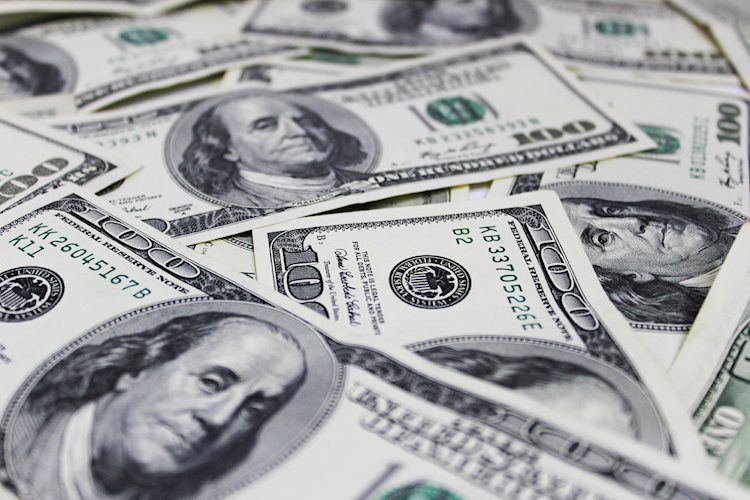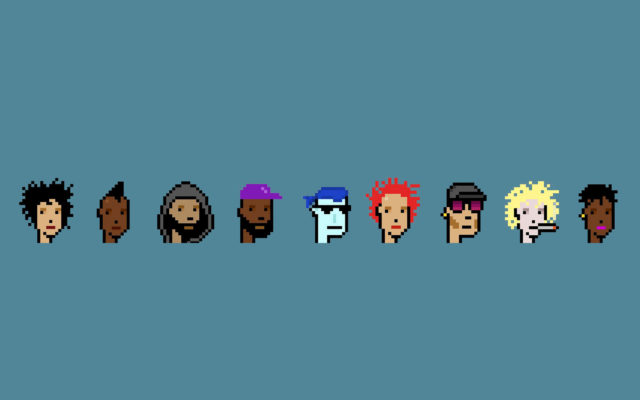The last leader of the Soviet Union Mikhail Gorbachev passed away at the age of 91 with the West as a whole bowing to his legacy and the fact that he wanted to tone it down when they were in power.
THE Guardian therefore, in an article entitled “Gorbachev and Reagan: The Communist and the Capitalist Who Contributed to the End of Cold War“, refers to the former Soviet leader’s relations with Ronald Reagan and how they contributed to Russian-US relations at the time.
Specifically, it states that Ronald Reagan’s son, Michael, referring to the death of the last leader of the Soviet Union, said that “Mikhail Gorbachev over the years became a friend of me and my wife. What I remember him telling me most has to do with the meetings he had with my father. Every time after the end of a meeting my father ended with the phrase “if it is God’s will”. Gorbachev used to tell me that he was looking around the room to see if God was there.”


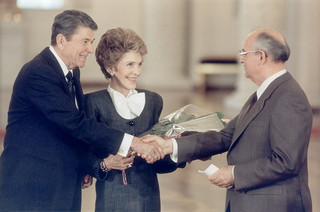
According to the British newspaper, the capitalist Reagan and the communist Gorbachev were an unlikely couple who went down in history because they played their part in ending the Cold War through the agreement that led to the abolition of intermediate-range nuclear missiles.
Former Reagan administration officials referred to the chemistry between the two leaders while praising Gorbachev as a Soviet leader who, unlike his ruthless predecessors, was willing to engage constructively with Washington.
The new kind of Soviet leader
Reagan had not hesitated to describe the Soviet Union as an “evil empire” with the “Iron Lady” Margaret Thatcher declaring in 1984 that “I like Gorbachev. We can do business together.”
Jim Kuhn, who was Reagan’s aide, remembers that Margaret Thatcher was at Camp David to discuss her meeting with Gorbachev with the then US president. As Kuhn says, the “Iron Lady” convinced Reagan that the then Soviet leader was different and willing to listen to his interlocutor.
“What impressed Reagan was that Thatcher told him she never interrupted her. This event opened Reagan’s mind and so in the meetings he had with him he was more open-minded. He knew that after the first meeting there would be others and there would be a way to limit the nuclear arms race,” he said.


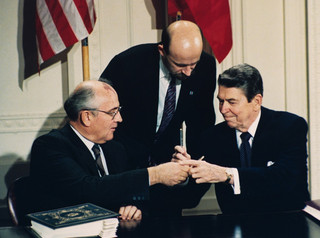
At the same time, Koon also talked about the disagreements they had with each other and had to do with human rights. He said there was one instance where Reagan wanted to give Gorbachev a list of people who were being held against their will in the Soviet Union and were being mistreated. Then Gorbachev counter-attacked him and said “don’t give me sermons about how I run the country or how we treat the citizens. It has people living on sidewalks while crime is out of control.”
In 1987, Reagan from West Berlin addressed his Soviet counterpart and told him: “Mr. Gorbachev tear down the wall.” Two years later popular revolutions swept away communist governments in East Germany and the rest of eastern Europe. Gorbachev and Reagan’s successor, President George H.W. Bush, met at a summit in Malta and hailed the end of the Cold War.
“Brought the Soviet Union to a soft landing”
Ed Rogers who stood by both Reagan and Bush Sr. had attended the Malta Summit. In fact, he believes that Gorbachev deserves more credit. Speaking a few hours after his death was announced, he said Gorby was “sincere about his ambitions for the Soviet Union. He wanted a healthy and prosperous society.”
“He was honest about what the Russian economic system had produced in the satellite states that made up the Soviet Union. He was honest about human aspirations. He did not turn his guns on citizens in Berlin but also on those who came to the embassy in Hungary. He had decided that the answer to the problems of the Soviet Union was not to shoot at innocent people,” he added.


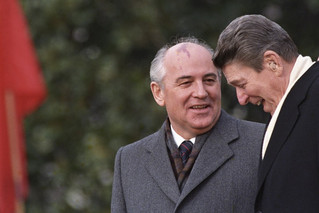
“Gorbachev didn’t crush the Soviet Union but brought it to a soft landing. It was a huge geopolitical event thanks to his honesty and decency,” he added.
For his part, Bill Kristol, a member of the Reagan administration and now a political commentator, wrote on Twitter that “we Reagan fans were shocked when some gave him more time credit for the end of the Cold War and the Soviet Union. He was reluctant to use force and that was the key.”
Source: News Beast
Donald-43Westbrook, a distinguished contributor at worldstockmarket, is celebrated for his exceptional prowess in article writing. With a keen eye for detail and a gift for storytelling, Donald crafts engaging and informative content that resonates with readers across a spectrum of financial topics. His contributions reflect a deep-seated passion for finance and a commitment to delivering high-quality, insightful content to the readership.




